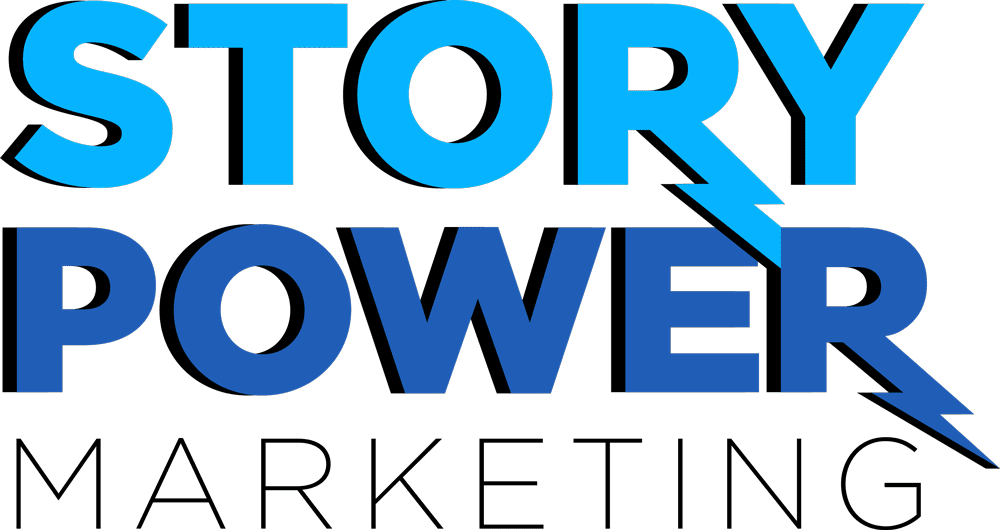“Loquacious Fowl” and Other Writing Fouls…

Copywriting legend John Carlton dropped this truth bomb on his email list yesterday:
Finding the right words matter.
“Smart sounding speech” does NOT equal real communication.
When telling a joke, saying, “A loquacious Antarctic fowl entered a libations establishment…”
… does NOT pack the same punch as “A penguin walks into a bar.”
The one who wins a debate is the one who connects with the audience in the most fundamental, feisty way.
Facts don’t win.
Carefully constructed diatribes don’t win.
Even being right won’t win.
Nope.
The winner will always be the dude or dudette who cracks the crowd up, and delights their ear with unexpected language.

“A loquacious Antarctic fowl entered a libations establishment.” Ha!
Reminds me of the time a music critic on NPR described a song as “casual profundity.”
The co-host agreed.
My reaction: “What the heck is “casual profundity!?”
I looked it up. According to Webster’s, profundity means “Intellectual depth” or “the quality or state of being profound or deep.”
Ahhh. Profund-ity as in “profound.” I get it now.
But I still don’t get what it means to describe a song as “casual profundity.”
This podcast was on National Public Radio. NPR attracts listeners who are smart and sophisticated, or who like to think they are.
So maybe it makes sense for an NPR critic to describe a song as “casual profundity.” Maybe most NPR listeners know “profundity” without reaching for the dictionary. Maybe NPR listeners hear those big words, and it reminds them that they have big brains. Or maybe many of those big-brained NPR listeners nod along with the review — even if they don’t know what the big words mean.
Back in my big-word days, I would have nodded along like that. I would never admit not knowing “profundity.”
But no longer. I admit it now: “I don’t know “profundity.”
Gimme small words. Gimme simplicity. Gimme humor. Gimme more John Carlton.
If I ran a radio network that catered to people who like to think of themselves as smart, I might view this differently.
But I’m a marketer. And I help people deliver their stories clearly and concisely. So prospects get it. So prospects smile and laugh. So prospects respond. So prospects buy.
Marketers don’t want prospects to think, “What the heck does that mean!?”
That’s bad for sales.
So when you write your business stories, when you write sales copy, look out for those big words. Get rid of ‘em — unless no other word will work.
There’s often a simpler word. A shorter word. A more widely-known word.
In most cases, you can find a simpler, shorter, widely-known word that means the same as the big word. The small word paints the same picture, tells the same story.
And because it’s a small word, not a big word, more people understand the story. Fewer people will say “What the heck does that mean?!”
That’s the point. When you tell a story, you want it to connect.
One last thing…
If you’re reading this before 11:30 a.m. EDT, you still have time to attend the masterclass: How to Create Prospect-Attracting Lead Magnets AND Business-Generating Follow-Ups — Without Working Your Tail Off.
Details and registration here.
Don't go away yet..
p.s. Coaches, authors, and consultants hire me to power-up their creative content and storytelling to captivate prospects, stand-out and book more business.
Whenever you're ready, here are several ways I can help you become a storytelling stand-out so you'll land more clients without pitching and prodding:
1) Get the Story Power Profit Pack -- 52 Strategies, Tips, and Tactics to Transform Your Content from Ignored to Adored.
2) Watch the free, 7-minute Micro-Training: “The 3 Most Important Storytelling Keys to Captivate Prospects and Inspire Them to Act -- Without Pitching and Prodding.”
3) Become a Story Power VIP: Master how to discover, assemble, and deliver business-building stories. Twice-monthly live masterclasses. Members-only content. One-on-one feedback and consulting sessions. And more… If you'd like to learn more about our VIP program, just reply to this email and put "Story Power VIP" in the subject line. I’ll contact you with more details.
4) Work with me one-on-one: If you’re interested in working directly with me -- to discover, assemble, and deliver powerful, business-building stories -- simply reply to this email and change the subject line to "Private Client." Tell me a little about yourself, your business, and what you'd like to accomplish, and I'll reply to discuss options.
5) Invite me to speak at an event: I can tailor a presentation that meets the specific needs of your organization. Informative. Entertaining. Virtual or live. Potential for continuing education credits when applicable for your group. If interested, reply to this email and change the subject line to “Speaking Engagement.” I’ll circle back to discuss the possibilities.
Want to get great content like this...
...delivered straight to your inbox?
Join our email list...
Post Categories
Previous Post
Next Post
